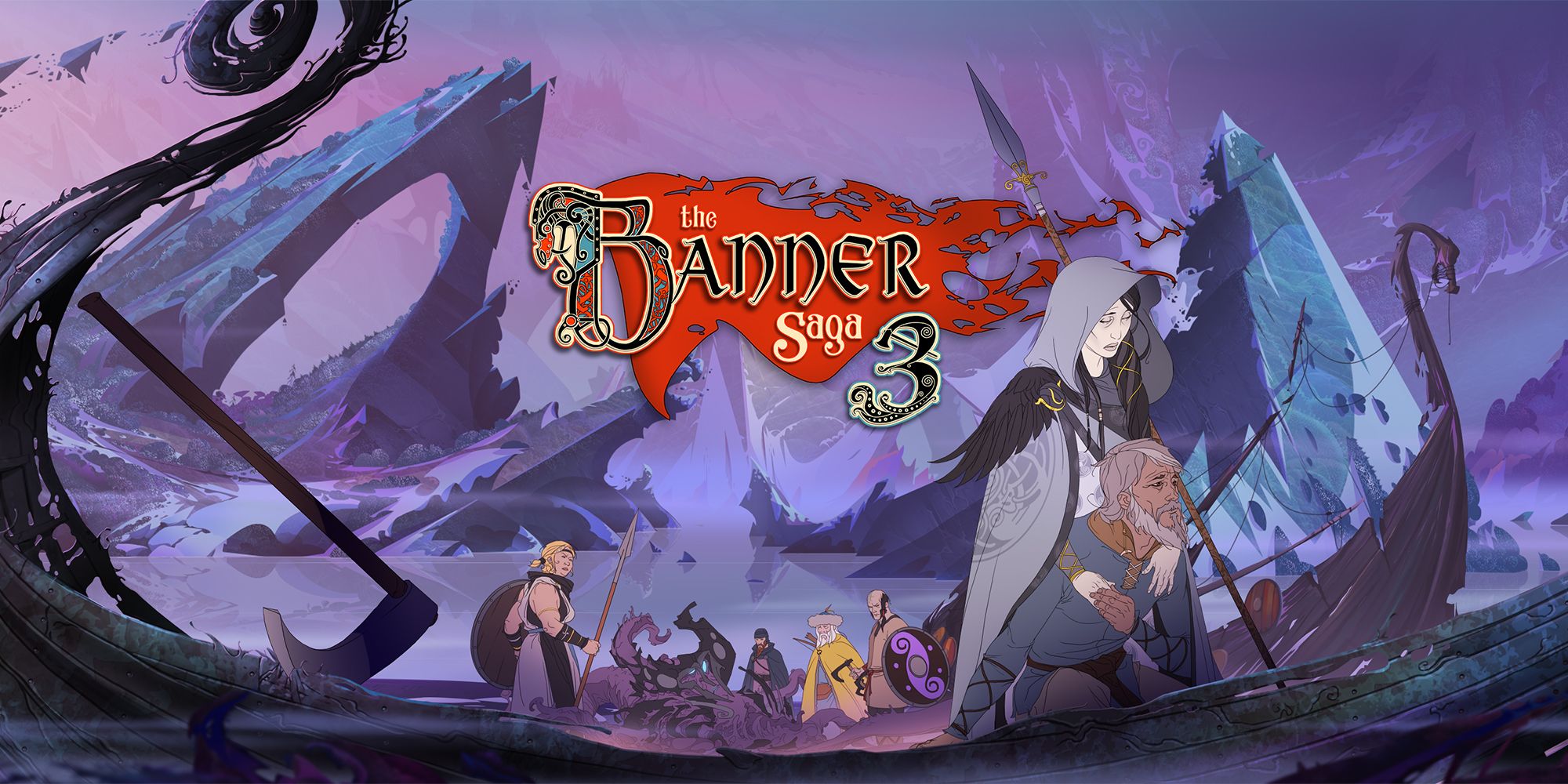
Alex Thomas, Stoic Studio co-founder and co-creator of The Banner Saga was on hand to answer some of our questions about the epic RPG series. Initially releasing back in 2014 on the back of a successful crowdfunding campaign, The Banner Saga gained the love of those excited about the prospect of a tactical RPG from the minds of three BioWare veterans.
And in 2018 The Banner Saga has come to its successful end with The Banner Saga 3. A triumph of video game storytelling, the team at Stoic managed to perfectly blend beautiful visuals, strong characters, and a compelling narrative based on Norse mythology into that rarest of beasts: a video game trilogy that had a satisfying conclusion.
Related: The Banner Saga 3 Review - The Power Of A Great Video Game Story
In our interview with Alex Thomas, we talk about the end of The Banner Saga, covering its permadeath focus, the sacrifices of its plot, and what comes next for Stoic. Read on to find out more.
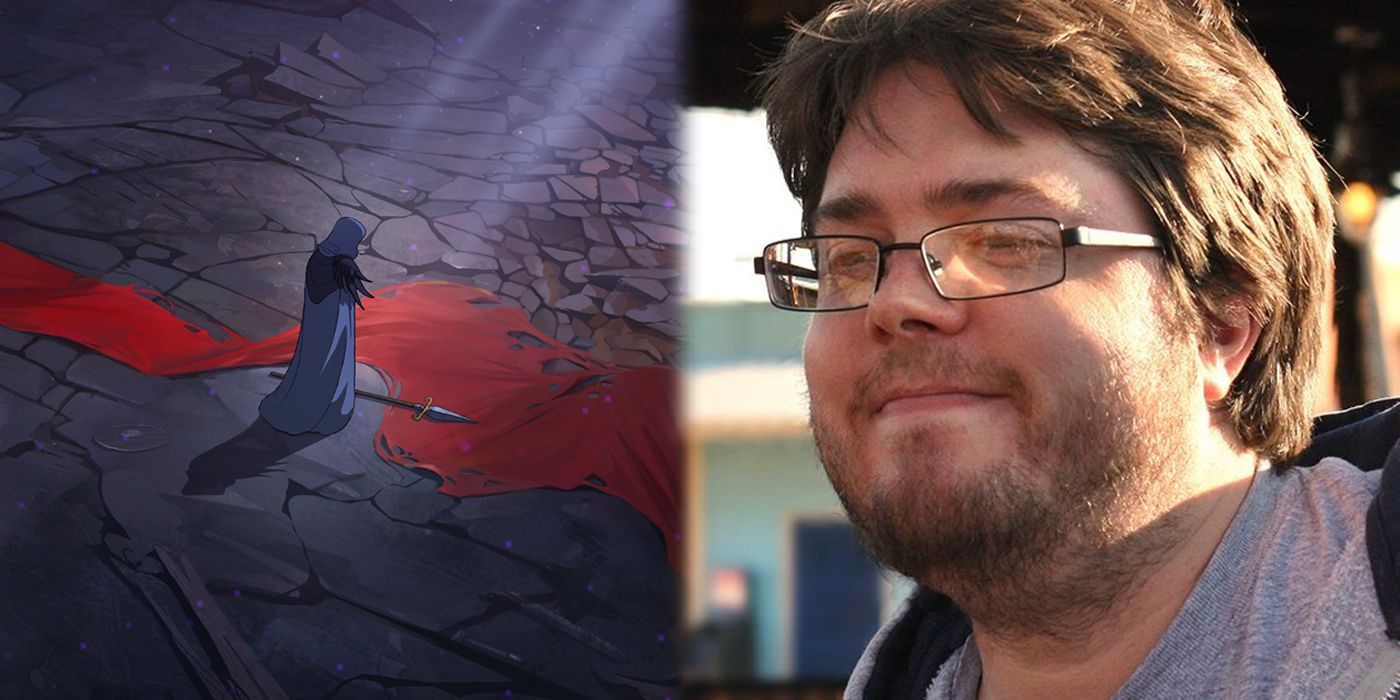
Alex Thomas: Hi, I'm Alex, the writer on Banner Saga 3 and one of the three original creators and designers of the series.
Screen Rant: The Banner Saga has always been ruthless with its characters, but part three has a tragic streak that outdoes the rest, particularly in those final chapters. Did you find it tough to potentially seal the fates of so many beloved characters?
Alex Thomas: You know, to be completely honest, that wasn't especially tough. What players don't see in the writing of a story like this is all the branching - probably at least a third of which is completely invisible unless you play through the game multiple times and try to get all the branching choices. In my head, all these different versions mix together and knowing sometimes they die and sometimes they don't softens the blow. But even without these alternate realities, I guess I'm from the type of fanbase that leans toward Game of Thrones over Lord of the Rings. Black Company is my favorite fiction, and it's basically fantasy Vietnam war stories. The feeling you get that nobody is safe, nobody has plot armor and the stakes are real was absolutely paramount to making the story work.
Screen Rant: Permadeath is integral to how The Banner Saga operates. Why did you make the decision to have such a finite stance on character survival?
Alex Thomas: Obviously, games differ in a lot of ways from books and film. One the most important ways is that the player is driving the action, so if you're going to take that away, why even make a game? After a while in almost any story-driven game I've played, I start to feel like my character is this all-powerful being, even to the point where sometimes I feel bad for the antagonists and side characters (I mean, I don't literally feel bad, they're fictional). But how are they supposed to have a chance in battle, or refuse the lecherous advances of an immortal deity who can bend space and time and save states to their will? Or how am I supposed to believe that my hero somehow mowed down 30 bad guys by himself without a scratch?
I was just so tired of the playing the same RPG with the same plucky group of child-adventurers saving the world without any chance of failure, that we made the antithesis. This was also a big part of the reason we don't let players manually save. It's fine if something major happens terribly wrong and players want to go back and replay big swathes of the game, but we didn't want to give them the temptation of reloading every little decision, hunting and pecking for the "optimal" solution.
On that topic, one of the big criticisms we faced in the first game was that some players felt like they could never make the right decision. Games have trained us that no matter what happens there's a way to do the right thing and get the best reward; having your cake and eating it too is just how it's done. A lot of that criticism died away in the follow-up games, I think as people started to see Banner Saga as its own thing and just accept things as part of their story. Something interesting happens when you accept bad things as part of your experience instead of trying to win.
But if I can be (even more) cynical for a moment, I think the main reason most entertainment doesn't allow their characters to die or leave or make rational decisions in their own best interest is that they want to build a brand and sell characters and bring people back for sequels. For Banner Saga, "nobody is safe" IS the brand, and it really freed us up to make a narrative that feels different.
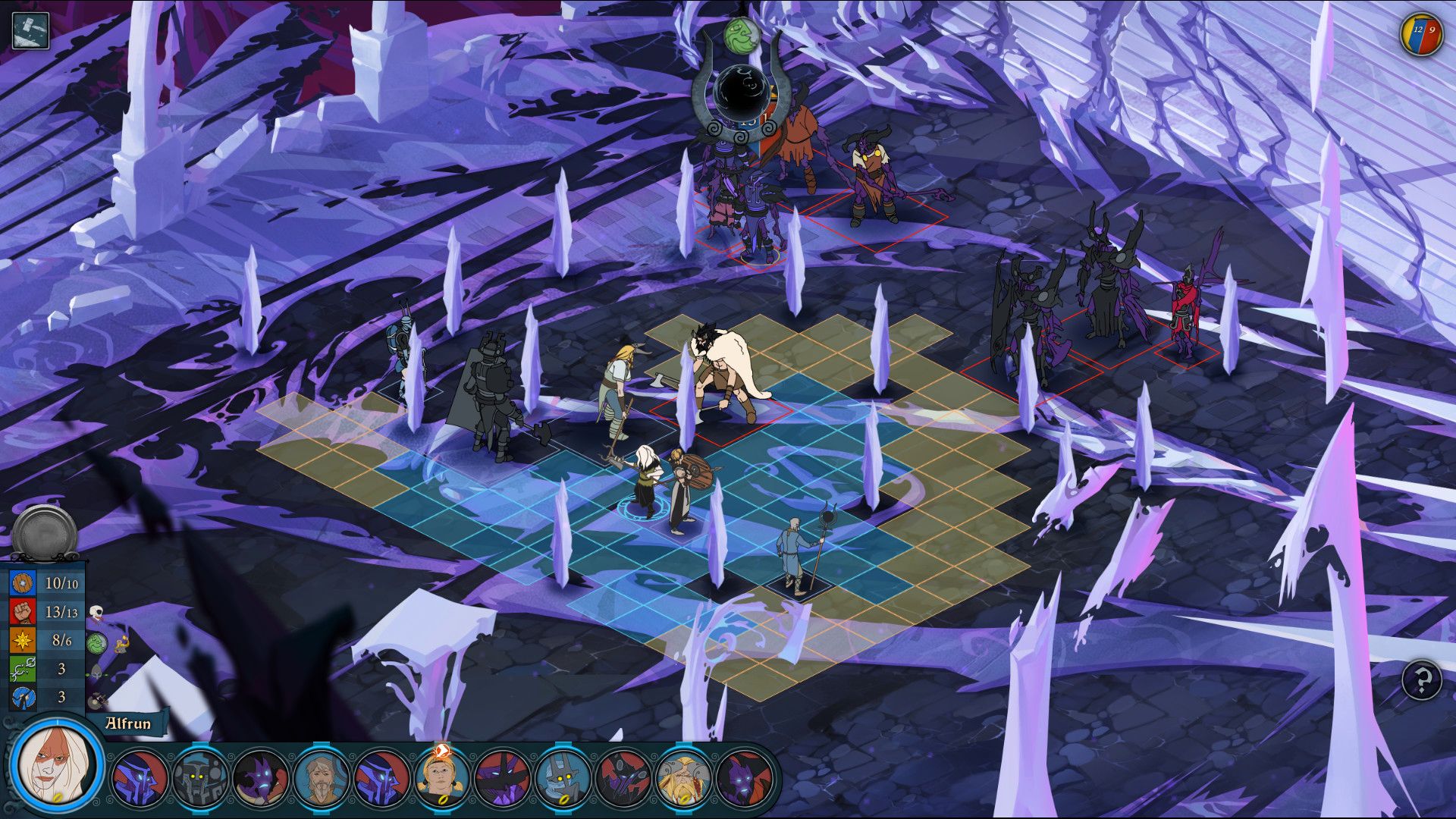
Screen Rant: The Banner Saga 3 leaves players with a tough choice. How early in the development of the series did you decide on that final scene?
Alex Thomas: A lot later than you'd think! Even before the Kickstarter we had a rough idea of what was happening and why, and we managed to stick with that all the way to the end, but the devil's in the details. Whether something resonates or not depends a lot on exactly how it all goes down. We spent a huge amount of time and resources arranging the ending, rearranging ideas, completely scrapping what we had and starting over, scratching our heads and going "Eh, it's not quite good enough yet."
We discovered pretty quickly that this shouldn't be a simple A or B choice; it had to incorporate all the decisions the player had made throughout all three games. But it also had to work if you hadn't imported your save, and it had to be a real choice where you knew exactly what you were choosing, but not the exact outcome. There was maybe another dozen considerations we were trying to juggle on top of all that. We were fine-tuning that sequence up until the last minute.
When you spend long enough going back and forth like that, you start to wonder if it makes sense to just simplify the whole thing. If you write a dozen different endings, some are naturally going to be more satisfying than others. Shouldn't you only give the player the best thing you can think of? Why not just give them the one best ending, then? And then on top of that we have limited resources - fully animated cutscenes are expensive, multiple orchestral soundtracks and sound is expensive, implementing and testing all this content is expensive. How can we re-cut and reuse as much of this as possible, while still delivering a sense of closure? Ultimately, we decided screw that, this is an indie game and we're gonna keep taking risks. Banner Saga was always about the world really responding to the choices you made, for better or worse. We just hoped our audience had come this far and would respect us for going all the way.
Screen Rant: Each end of the game results in sacrifice. Did you have any hesitancy about leaving players without a truly happy ending?
Alex Thomas: One of the reviews we got after releasing our first game that totally blindsided us called it a "depression simulator." That's stuck with me since because I find it so funny. We honestly didn't feel like we had made such a tragic thing, we were just trying to make something that felt believable. I guess that applies to the endings, too - I would have said "yeah, there's some good endings and some bad ones." But a truly "happy" ending, I guess I never considered that. Do people in real life have happy endings? I'd love to see a romantic comedy where the two unlikely love interests go through extraordinary circumstances to fall in love, then two weeks later realize they have completely unmanageable differences on something mundane like finances or religious beliefs or something and go "dang, that was a complete waste of time." Anyway, one of the ongoing themes of Banner Saga is change; the characters change over time, the landscape is permanently changed by the darkness, the existence of entire species changes. I never felt like there was going to be an ending where all this change is undone and things went back to peaceful villages and quiet growth. Dang, that'd be a complete waste of time.
But I mean, c'mon, it's a viking epic! Have you read their mythology?
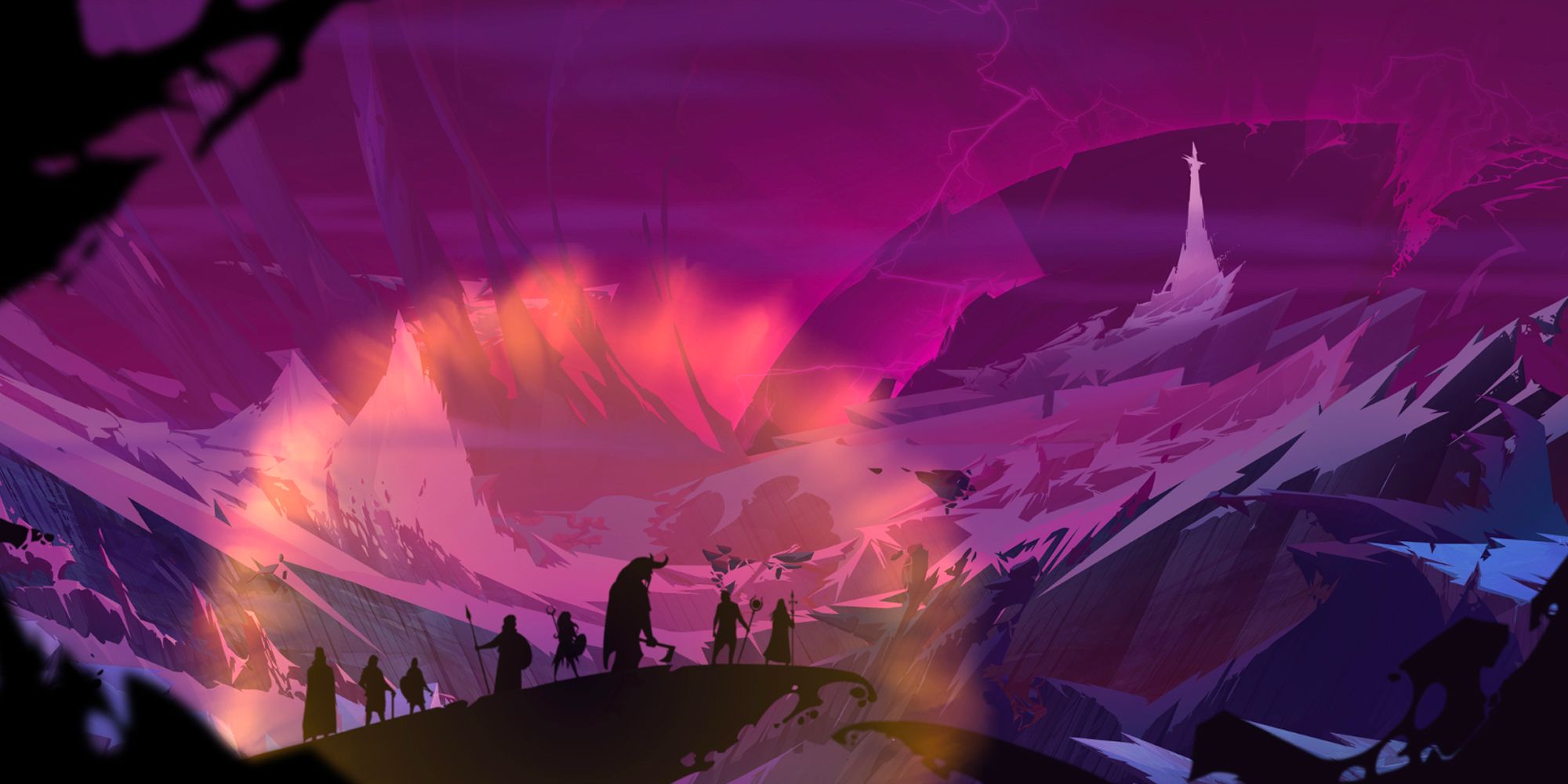
Screen Rant: What's been the player reaction to the finale? Have you had any tearful messages? It was certainly something of a gut punch - in my playthrough, at least!
Alex Thomas: We've had a ton of fans sharing their experiences and admitting they may have shed a tear or two, and we're incredibly thankful for everybody who tells us they loved the game. We put so much blood, sweat and tears into making this thing that we always hoped it would resonate with fans, and we're super glad and relieved that seems to be the case. Plus, the benefit of making something that's really personal is that you get to hear from people who are like you and appreciate the same things, and that's been really rewarding.
The art style of The Banner Saga looks just as fresh in part three as it did when the original was released. Given the success of the series, do you think it's opened up other smaller studios into thinking of that kind of animated style?
Alex Thomas: I think we've been very surprised to see some games come out that have been compared to Banner Saga, to the point where some reviewers are calling us a sub-genre of strategy now. That's crazy. We owe our art inspiration to the work that Eyvind Earle did for Sleeping Beauty and his own personal art pieces. They guided us to a style that feels pretty timeless, and we hope it's just as compelling a hundred years from now. As for other indie studios feeling inspired by the success, I'd have to say I don't think they really needed our help! There's an insane number of games getting released out there! But I really love how many games are getting made now that value that sort of beauty and artistry. It's really inspiring to see.
Screen Rant: Between God of War and Hellblade: Senua's Sacrifice, are you interested to see this emphasis on Norse mythology in gaming in the last few years?
Alex Thomas: It was an interesting phenomenon, I'd probably attribute to coincidence as much as anything. It's like when suddenly there's four movies coming all look like they had the same idea at the same time. From our perspective, we actually began with a pretty generic medieval fantasy setting. I was inspired growing up by games like Final Fantasy Tactics and Shining Force and was thinking along those lines. My co-founder Arnie Jorgensen, coming from some Scandinavian roots himself, floated the idea of norse mythology. I started looking deeper into Norse mythology and thought wow, there's so much great stuff here, this could definitely work. And I'm always happy to see more viking games, I'd take that over a modern setting any day.
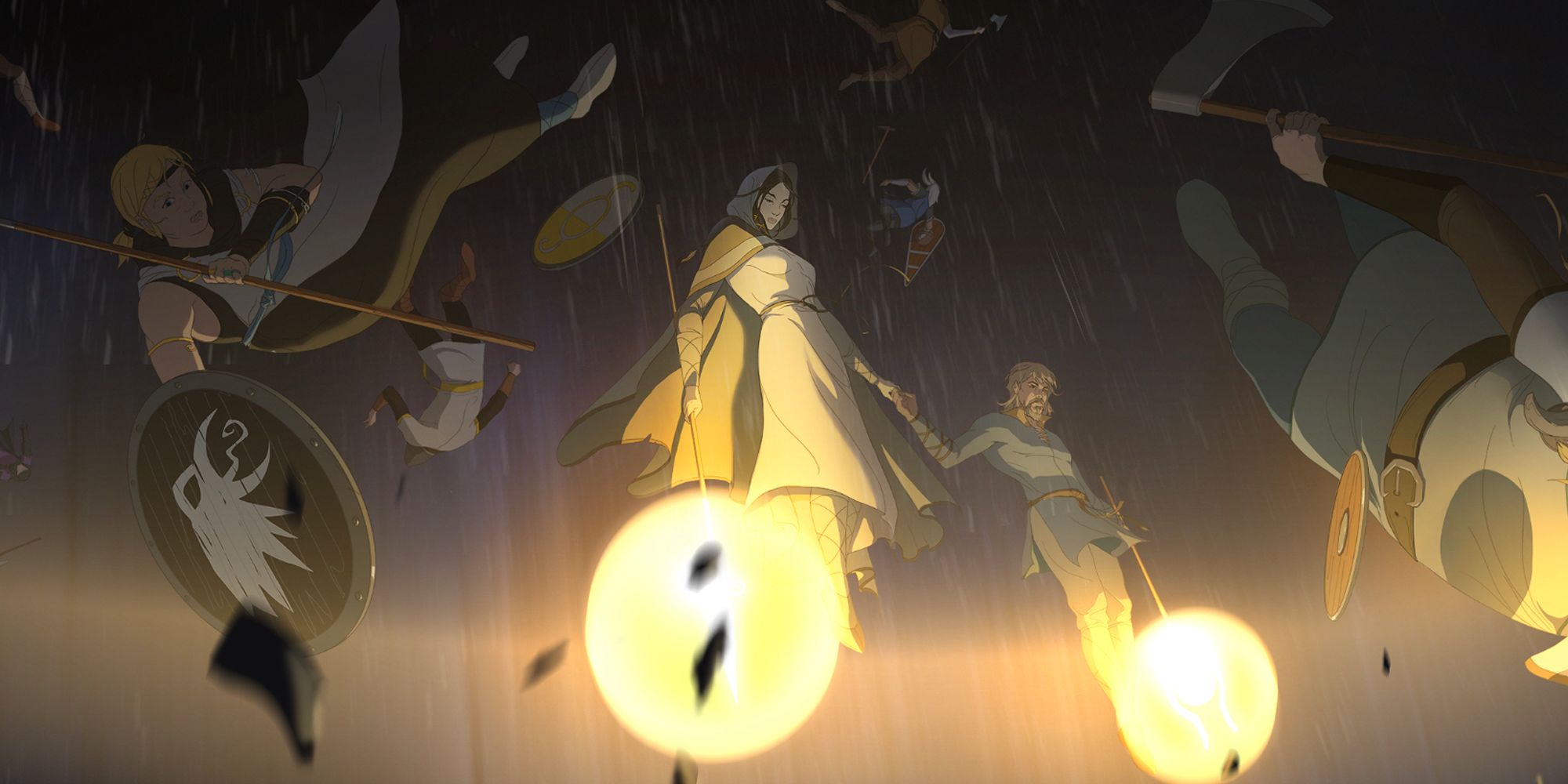
Screen Rant: Is there another mythology Stoic would like to get inspiration from for another game? Could we see a Stoic RPG taking notes from The Odyssey, for instance?
Alex Thomas: Hah, well, starting with a mythology and building from it is certainly a great stepping stone. Like you maybe hint at, it's something Assassin's Creed and other titles have been putting to great use for a while now. I'm pretty certain we'll leave Norse influence to the world of Banner Saga, but we're looking at a lot of options for the next game, some that might be a little surprising.
Screen Rant: This marks the end of The Banner Saga, but what's next for Stoic? Do you have any ideas in mind for another project?
Alex Thomas: Oh certainly, without a doubt. We've designed multiple pitch decks for different games, but have decided on one in particular that the team is really excited about. We've already been working on it for some time and you'll be hearing more about it when we think it's ready to show!
More: It's Not Over Yet - Big Games Still to Come In Late 2018
from ScreenRant - Feed https://ift.tt/2RnnYVf



0 Comments